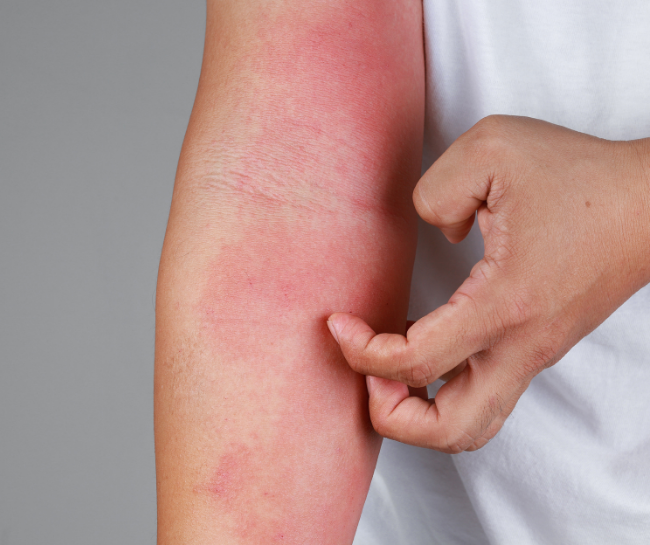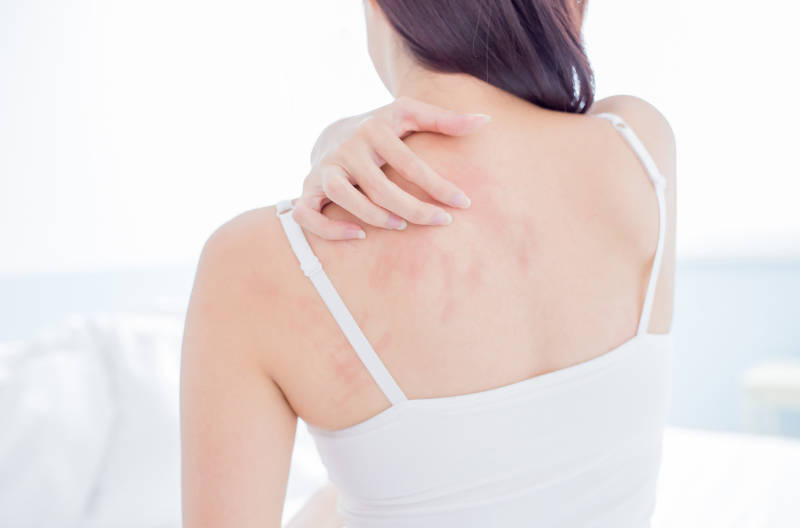Eczema affects around 20% of people of all ages around the world, including both adults and children. There is currently no known cure for eczema; however, there are many effective treatments and self-care options available.
For treating eczema, there are traditional medical options, such as lotions, procedures, and medications. However, there are also homeopathic treatment options that include supplements for eczema. Moreover, lifestyle changes can contribute to eczema relief.
What is eczema

Eczema, or atopic dermatitis, is characterized by dry, itchy, and inflamed skin that can form blisters. In some cases, skin can even become thickened and begin to scale.
Although most common in children, eczema can occur in individuals of all ages. Eczema is a chronic condition that often flares up because of triggers such as food, weather, and environmental exposures.
Lifestyle changes for treating eczema
For some people, certain foods trigger eczema. Monitor what you eat and pay special attention to which foods seem to trigger flare-ups. For example, fish, peanuts, eggs, and soy are common culprits.
One thing that contributes to the severity of eczema is stress. Reducing stress, anxiety, nervousness, or depression in your life can play a huge role in helping with eczema relief and reducing flares.
Herbal treatments
Some herb-infused lotions and creams may help with the symptoms of eczema, including lotions infused with the following herbs:
- Chamomile
- Chickweed
- Marigold
- Licorice
St. John’s wort, when used as a topical lotion or cream, showed promise in one particular study. In the study, people with eczema used a placebo cream on one arm and St. John’s wort on the other arm. The arm that used the St. John’s wort showed less severity of eczema.
Medicinal treatments for eczema
There are several medicinal treatments for eczema symptoms.
Anti-itch lotions
Topical corticosteroids such as hydrocortisone can soothe mild dry patches. Some brand-name anti-itch products such as Calamine or Caladryl also offer relief.
Topical immunomodulators (Tcis)
There are new drugs on the market that are steroid-free and applied directly to the skin for the reduction of inflammation. The drugs prescribed most commonly are pimecrolimus (Elidel) and tacrolimus (Protopic). Generally, these drugs are recommended if other medications have been ineffective.
Antihistamines
For nighttime relief, some physicians may direct patients to take antihistamines such as diphenhydramine (Benadryl), which helps to prevent scratching. However, these medications cause drowsiness, so they aren’t a daytime solution. Topical antihistamine preparations may be other options.
Oral corticosteroids
In severe cases, oral corticosteroids may be prescribed to patients who need urgent relief. Some examples of these medications include methylprednisolone (Medrol) and prednisone (Deltasone). If patients fail to show improvement, doctors may prescribe immunosuppressant medications.
Medical procedures
For patients ages 12 and over, ultraviolet light treatment can provide relief in mild-to-moderate eczema cases. When combined with a psoralen drug, this therapy is called photochemotherapy.
Supplements for treating eczema
Below, we have listed the most common supplements for eczema:
- Omega-3 fatty acids
A link has been established between skin health and omega-3 fatty acids. Omega-3 reduces inflammation in the body, which also benefits the skin. Specifically, one study in rodents concluded that the use of omega-3 fatty acids reduced the type of skin lesions that are caused by eczema.
- Zinc
Although most people meet their dietary requirement for zinc through food, taking a zinc supplement can be beneficial for people with eczema. Studies demonstrate that zinc can be useful in treating inflammatory skin conditions such as eczema and acne.
🔔 A number of studies show that supplementing with zinc may help reduce eczema severity. If you happen to be a zinc deficiency, supplementation may be beneficial for your condition.
- Vitamin D
When exposed to the sun, our skin produces vitamin D, and this vitamin is also found in various foods and supplements. A review of four separate studies determined that vitamin D is more effective than placebo treatments. Moreover, other studies have suggested that vitamin D reduces inflammation markers, which helps with eczema since it is an inflammatory condition
🔔 New research suggests that supplementing with vitamin D may help to reduce symptoms and inflammation of eczema.
- Probiotics
These are taken orally and are beneficial bacteria. Numerous studies have found that infants who take probiotics are less likely to develop eczema. Also, 25 studies have demonstrated that probiotic supplements decreased symptoms of eczema in both adults and children.
- Vitamin E
Taking vitamin E supplements may help with overall skin health improvements and eczema symptoms. Vitamin E protects that skin from oxidative stress, thereby decreasing eczema symptoms. Coupling vitamin E with vitamin D shows even more dramatic improvements.
🔔 A study found that supplementing with vitamin E may help improve skin health and decrease symptoms of eczema..
- Melatonin
Studies show that melatonin may serve to act as an antioxidant that reduces certain inflammation marker levels. One study tested melatonin with 48 children and found that they showed improvement in their eczema symptoms after four weeks of melatonin therapy.
Comment below to share your thoughts and don’t miss our blog on supplements for acne.







